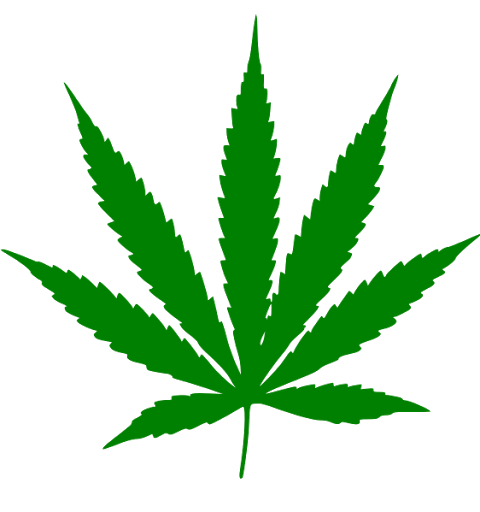The Christian and Marijuana
[Disclaimer: this post is NOT intended to disparage the medically helpful use of non-THC cannabinoid products, nor the careful and temporary use of medically-indicated antidepressant or anti-anxiety drugs prescribed by a physician.]

As the recreational and medical use of marijuana is legalized across America, I am concerned that believers are justifying the use of pot because “it is no longer illegal.” Though it remains a controlled substance on federal lists, the feds don’t seem to be on a crusade against states where marijuana use is now legal at the state level.
Between the general cultural lessening of the stigma regarding drug use/abuse, and the change in its legal status, some professing Christians believe that the use of psycho-active substances such as marijuana is a legitimate lifestyle choice. The most common justification I hear is, “it helps me relax,” or “it helps me deal with stress.”
There are, in my opinion, many good reasons Christians should abstain from all psycho-active substances unless specifically prescribed by a physician. There’s a medical case against it (especially regarding teens and marijuana, in terms of the impairment of brain development), there’s a psychological case against it (loss of motivation and ambition, and the development of psychological dependency), and there’s certainly a social case against it (marijuana is a gateway drug and is demonstrably associated with irresponsible behavior). Great caution should be exercised even when a physician does prescribe a drug—the over-prescription of psycho-active drugs is a recognized problem in the typical American practice of medicine.
There is also a likely Scriptural case against such drug use at the lexical level. The Greek term φάρμακον (pharmakon, from which we get the English terms pharmacy and pharmaceuticals), and its related words, is translated with the English term sorcery or sorcerer in Galatians 5:20, Revelation 9:21, 18:23, 21:8, and 22:15. The Dictionary of New Testament Theology indicates this word group was typically associated with the use of substances involved in the practice of magic: medicines, herbs, potions, and poisons. The New Testament consistently associates the word with negative and prohibited practices. Galatians 5:20 includes sorcery in the list of the “deeds of the flesh,” saying that “those who practice such things will not inherit the kingdom of God” (5:21).
Modern users of marijuana may not be consciously engaging in classical “magic” practices in their use of the drug, but that neglects to consider the general shift away from superstitions in our post-enlightenment culture. For example, moderns don’t necessarily believe in animistic gods as supernatural beings—but we still practice idolatry by worshiping something other than God (sex, money, etc.). The worship no longer takes on the appearance of the cultic practices of the pre-modern era, but it is worship all the same and therefore idolatry all the same. By the same token, moderns using marijuana are not consciously practicing magic, but they are pursuing the benefits, the highs, the alteration of consciousness that ancient magic practices promised, and as such there is virtually no distinction between modern and ancient usage of drugs.
But none of those arguments are the strongest arguments against the use of marijuana by believers. When a believer uses the drug for the euphoria of the high it is no different from drunkenness, which is roundly condemned by Scripture. When a believer uses the drug to relax or escape the pressures of stress and difficulty, he is endorsing the assumption that stresses, difficulties, and trials are bad, are a moral evil, and therefore should be eliminated or avoided.
But that’s not how the Scripture treats stresses, trials, and troubles. Instead, the Bible presents these dynamics as tools in the hands of God that make us more like Christ. Peter says the trials work the “proof of our faith, being more precious than gold,” and ultimately are found to “result in praise and glory and honor at the revelation of Jesus Christ” (1 Peter 1:7). Somehow I don’t think that dealing with trials by toking on a joint produces the same glory, honor, and praise toward Jesus Christ.
Peter also says that God’s divine power has granted us “everything pertaining to life and godliness through the knowledge of Him who called us by His own glory and excellence” (2 Peter 1:3). I don’t think he meant that God’s power plus pot accomplishes the glory of Christ. If we need marijuana to cope with life, then we are obviously demonstrating to the world that God’s divine power is frankly inadequate.
Paul says that he boasts in weakness, distresses, difficulties for Christ’s sake, because in his weakness Christ’s power is perfected in him (2 Corinthians 12:9-10). I don’t think Paul dealt with his troubles with Christ plus pot.
In my opinion this is the greatest argument against the use of marijuana. The stresses, trials, troubles of life are designed to produce the image of Christ in our character. When we can only deal with those things by getting high, we are confessing that what Jesus has done for us is insufficient to deal with “real life.”
Is the inadequacy of Christ really the message you want to proclaim?

As the recreational and medical use of marijuana is legalized across America, I am concerned that believers are justifying the use of pot because “it is no longer illegal.” Though it remains a controlled substance on federal lists, the feds don’t seem to be on a crusade against states where marijuana use is now legal at the state level.
Between the general cultural lessening of the stigma regarding drug use/abuse, and the change in its legal status, some professing Christians believe that the use of psycho-active substances such as marijuana is a legitimate lifestyle choice. The most common justification I hear is, “it helps me relax,” or “it helps me deal with stress.”
There are, in my opinion, many good reasons Christians should abstain from all psycho-active substances unless specifically prescribed by a physician. There’s a medical case against it (especially regarding teens and marijuana, in terms of the impairment of brain development), there’s a psychological case against it (loss of motivation and ambition, and the development of psychological dependency), and there’s certainly a social case against it (marijuana is a gateway drug and is demonstrably associated with irresponsible behavior). Great caution should be exercised even when a physician does prescribe a drug—the over-prescription of psycho-active drugs is a recognized problem in the typical American practice of medicine.
There is also a likely Scriptural case against such drug use at the lexical level. The Greek term φάρμακον (pharmakon, from which we get the English terms pharmacy and pharmaceuticals), and its related words, is translated with the English term sorcery or sorcerer in Galatians 5:20, Revelation 9:21, 18:23, 21:8, and 22:15. The Dictionary of New Testament Theology indicates this word group was typically associated with the use of substances involved in the practice of magic: medicines, herbs, potions, and poisons. The New Testament consistently associates the word with negative and prohibited practices. Galatians 5:20 includes sorcery in the list of the “deeds of the flesh,” saying that “those who practice such things will not inherit the kingdom of God” (5:21).
Modern users of marijuana may not be consciously engaging in classical “magic” practices in their use of the drug, but that neglects to consider the general shift away from superstitions in our post-enlightenment culture. For example, moderns don’t necessarily believe in animistic gods as supernatural beings—but we still practice idolatry by worshiping something other than God (sex, money, etc.). The worship no longer takes on the appearance of the cultic practices of the pre-modern era, but it is worship all the same and therefore idolatry all the same. By the same token, moderns using marijuana are not consciously practicing magic, but they are pursuing the benefits, the highs, the alteration of consciousness that ancient magic practices promised, and as such there is virtually no distinction between modern and ancient usage of drugs.
But none of those arguments are the strongest arguments against the use of marijuana by believers. When a believer uses the drug for the euphoria of the high it is no different from drunkenness, which is roundly condemned by Scripture. When a believer uses the drug to relax or escape the pressures of stress and difficulty, he is endorsing the assumption that stresses, difficulties, and trials are bad, are a moral evil, and therefore should be eliminated or avoided.
But that’s not how the Scripture treats stresses, trials, and troubles. Instead, the Bible presents these dynamics as tools in the hands of God that make us more like Christ. Peter says the trials work the “proof of our faith, being more precious than gold,” and ultimately are found to “result in praise and glory and honor at the revelation of Jesus Christ” (1 Peter 1:7). Somehow I don’t think that dealing with trials by toking on a joint produces the same glory, honor, and praise toward Jesus Christ.
Peter also says that God’s divine power has granted us “everything pertaining to life and godliness through the knowledge of Him who called us by His own glory and excellence” (2 Peter 1:3). I don’t think he meant that God’s power plus pot accomplishes the glory of Christ. If we need marijuana to cope with life, then we are obviously demonstrating to the world that God’s divine power is frankly inadequate.
Paul says that he boasts in weakness, distresses, difficulties for Christ’s sake, because in his weakness Christ’s power is perfected in him (2 Corinthians 12:9-10). I don’t think Paul dealt with his troubles with Christ plus pot.
In my opinion this is the greatest argument against the use of marijuana. The stresses, trials, troubles of life are designed to produce the image of Christ in our character. When we can only deal with those things by getting high, we are confessing that what Jesus has done for us is insufficient to deal with “real life.”
Is the inadequacy of Christ really the message you want to proclaim?
Published on November 20, 2020 09:25
No comments have been added yet.



